If Nashville calls for cease-fire in Israel-Hamas war, it should be for the right reasons
On Tuesday, Nashville's Metro Council unanimously passed a $3.3 billion budget to fund schools, public safety, worker raises, and many other municipal programs and priorities.
One item they did not vote on, however, was a resolution sponsored by 17 of 40 council members to support an end to the war that has left more than 1,200 Israelis and tens of thousands of Palestinians dead and millions displaced in Gaza as a result of Hamas's Oct. 7, 2023, attack against Israel.
The sponsors include At-Large Council Member Zulfat Suara, the first Muslim person elected to the body, and District 19 Council Member Jacob Kupin, who sits on board of the Jewish Federation of Greater Nashville. They chose to withdraw the resolution after pushback from opponents − and contending with nasty discourse and brazen, unwarranted insults − over the language and intent of the proposal.
"Our Peace bill was withdrawn last night with the hope we can continue to work on better language & ways to bring our communities together," Suara posted on X Wednesday.
Our Peace bill was withdrawn last night with the hope we can continue to work on better language & ways to bring our communities together. Thanks to my cosponsors & those that sent suggestions. Many thanks to @JacobKupin4D19 Sorry you had to endure attacks from your own community pic.twitter.com/ZVzWX88kGD
— Councilwoman Zulfat Suara (@zulfat4council) June 19, 2024
Over the last several months, pro-Palestine protesters have demanded that the Metro Council enact such a resolution and the language has become heated and hyperbolic. During a recent public comment portion at a council meeting, one resident accused Kupin of being a Zionist. On social media, at least one vocal critic has claimed Suara is affiliated with anti-Israel terrorist groups.
Across the country, protesters have demanded that local authorities take a stand on the war. But before they bring back any revised resolution, sponsors must answer these very pertinent questions: Is this a measure they should actually be taking up as a local governing body? Will it do more good or harm?
Nashville's cease-fire resolution would be symbolic but also send a message
This issue is incredibly polarizing, yielding protests across college campuses, ending the careers of university presidents, and dividing nations across the world over terms such as genocide and war crimes and whether the United States should continue to back its strongest ally in the Middle East.
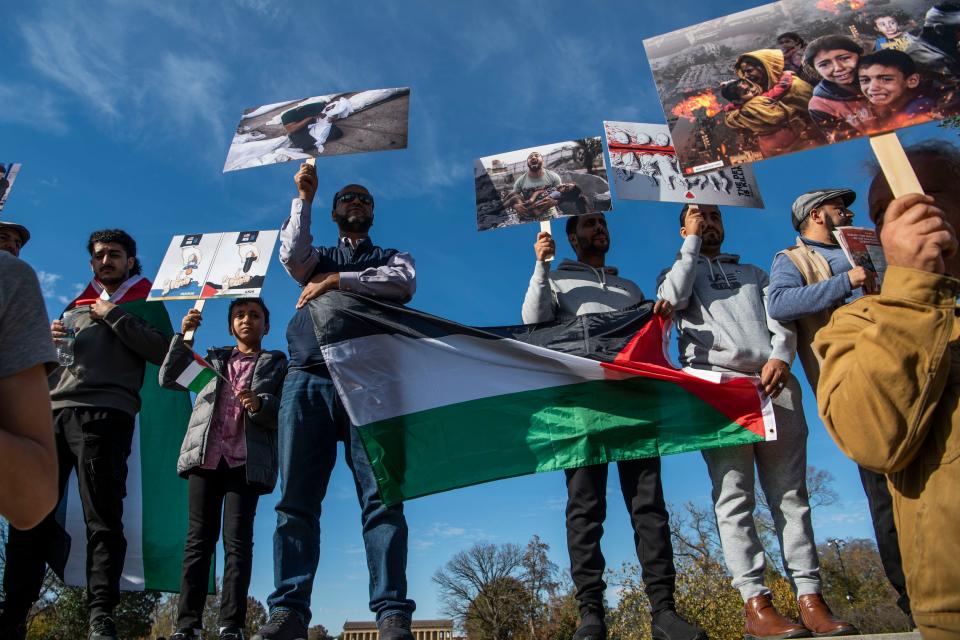
On June 10, the United Nations Security Council finally adopted a U.S.-backed cease-fire in the war after many months of the United States opposing similar proposals.
There are strong and angry emotions over Israeli hostages who continue to be kept in captivity, concerning Gazans who are starving and unhoused, and by the diaspora abroad that feels helpless.
On the one hand, Nashville does not conduct foreign policy on behalf of American citizens. On the other hand, Metro Council is the government closest to the people where citizens feel they can be heard. Perhaps the thinking is that if enough city and county elected bodies do the same, it will guide national leaders to make better decisions.
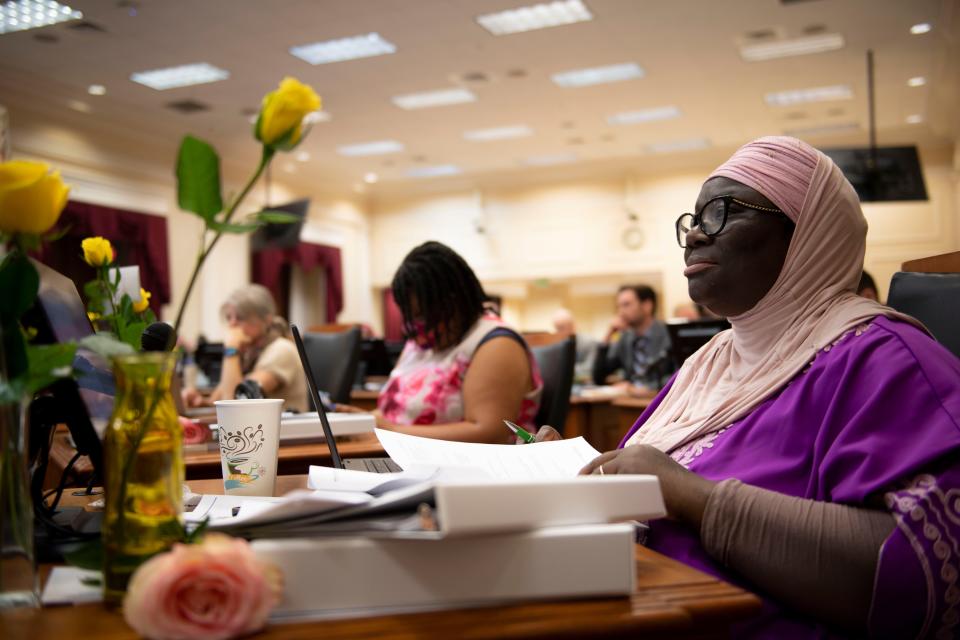
The cooperation between Council members of different backgrounds and interests shows there is a sincere attempt to seek compromise and common ground at a time when our nation is so polarized politically.
If a local cease-fire resolution were to pass, it would be merely symbolic, but it would send a message about Nashville's values − and it would also likely provoke immense pushback.
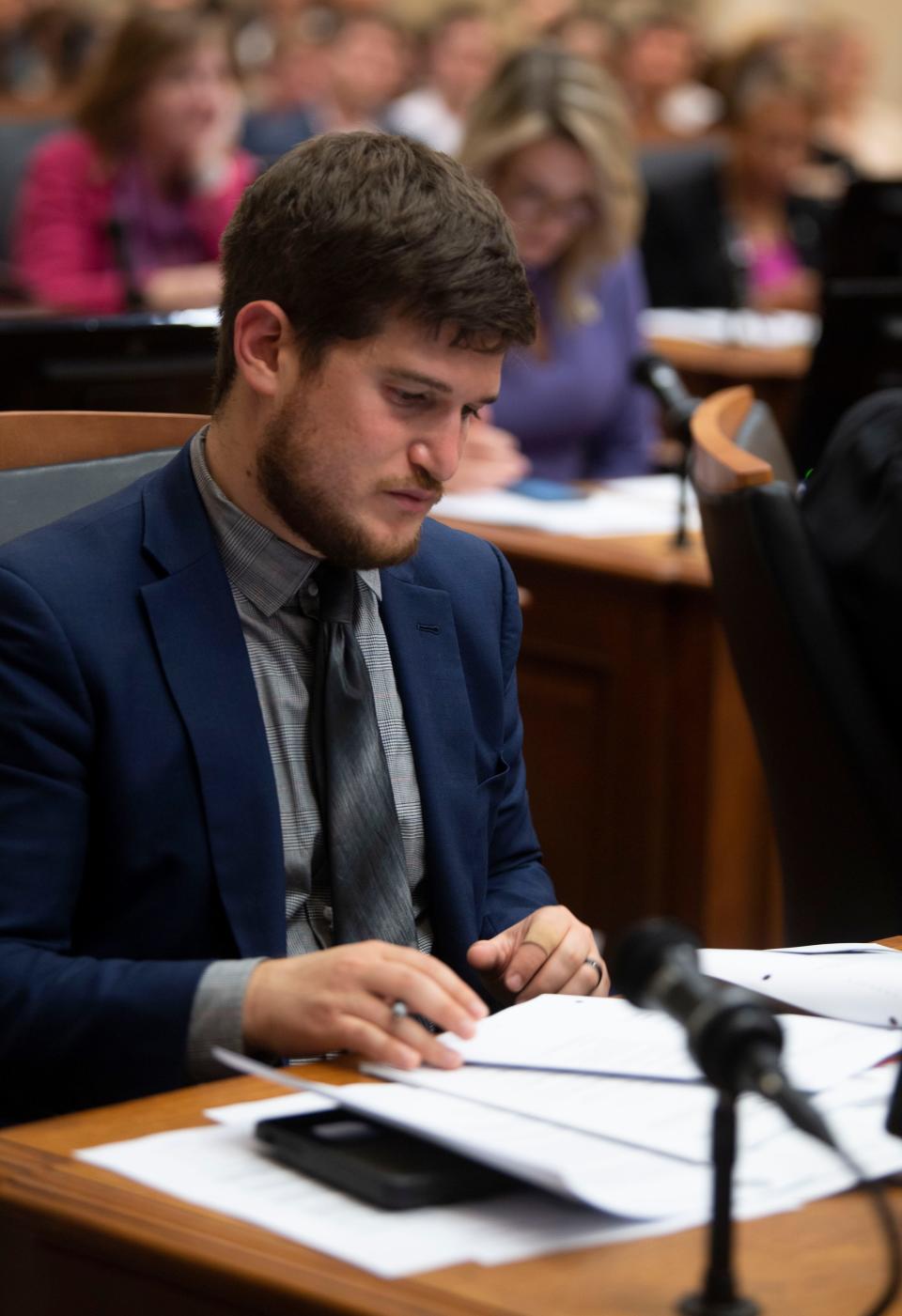
Interfaith dialogue is core to Nashville's DNA
The withdrawn resolution called for two things, actually. First, as mentioned before, "supporting an end to violence between Israel and Palestine."
But the second part does take the issue to a local level: "The Metropolitan Council further goes on record as supporting all of Nashville’s Palestinian, Israeli, Muslim, and Jewish residents and condemns antisemitic and Islamophobic rhetoric and attacks."
These groups have endured insults, threats and violence against places of worship in Middle Tennessee.
Nashville has prided itself on being a welcoming city. The city has the largest population of Kurdish residents in the U.S. outside of Kurdistan. The region boasts numerous mosques and synagogues in addition to churches.
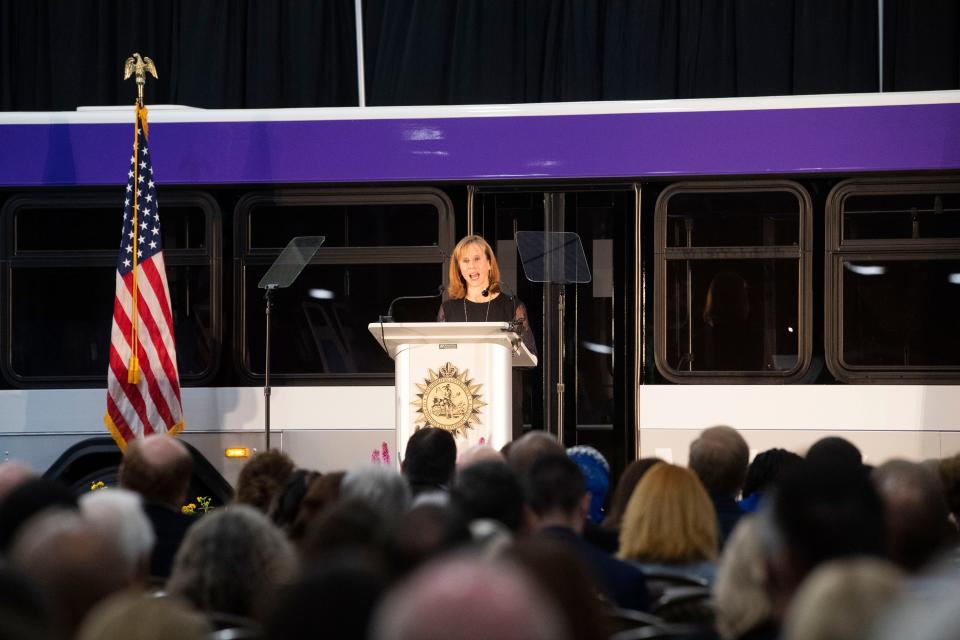
Interfaith dialogue has been pivotal to the city's brand whether it is in exchanges between diverse places of worship, the work of the 10-year-old faith-based grassroots community organization Nashville Organized for Action and Hope, or the ecumenical prayers at the mayor's annual State of Metro.
Israel-Hamas war is both a global and local issue for some
Just three weeks after the Oct. 7 attack, the civic organization Millions of Conversations convened a community discussion in Nashville's Hillsborough Village neighborhood on peacemaking with a group of 100 in attendance that included Christians, Jews and Muslims.
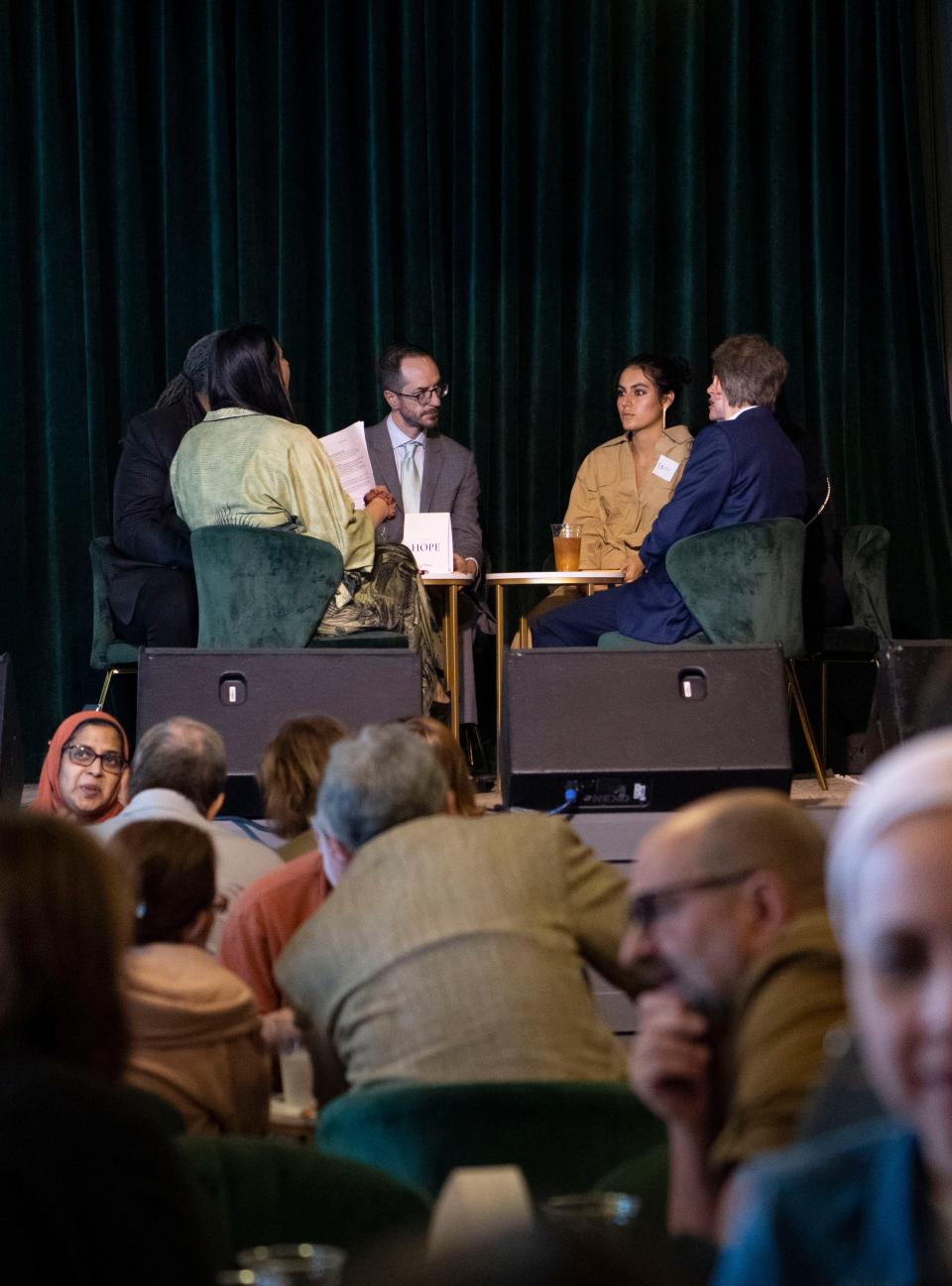
Neighbors in our community expressed their pain over suffering families, the rise in antisemitism and Islamophobia, and the breakdown of interfaith relationships built over many years.
So, while the war is a global issue, it is very much a local issue for so many of our residents because they have spiritual or familial ties to the Middle East.
I was there at the community discussion, and I wrote in the Nov. 9 edition of the Tennessee Voices newsletter: "Bridges that have been built over decades are threatened with disrepair."
The Tennessean opinion section has sought to invite different viewpoints on the Israel-Hamas war to keep the civil dialogue going, precisely because it is hard, painful and necessary.
Metro Council must keep focused on getting to the right answer
In its June 16 newsletter, the Jewish Federation newsletter wrote about the now withdrawn resolution this way: "Some people believe the resolution is unbalanced, while others believe it does not go far enough denouncing the violence and demanding a ceasefire."
Will a revised resolution be a path toward healing a broken community? Or will it further stoke division?
This pause is good. Maybe the resolution is part of the solution and maybe not, but council members should not get distracted by social media trolls, give excessive attention to the loudest voices or fall prey to political pressure.
Metro Council should do what is right for the community.
Take the time to listen and convene more conversations. Keep the dialogue alive to create new and better friendships, offering better insight on what the right answer is.
Work to build and repair bridges, not to destroy them.
David Plazas is the director of opinion and engagement for the USA TODAY Network Tennessee. He is an editorial board member of The Tennessean. He hosts the Tennessee Voices videocast and curates the Tennessee Voices and Latino Tennessee Voices newsletters. Call him at (615) 259-8063, email him at dplazas@tennessean.com or tweet to him at @davidplazas.
This article originally appeared on Nashville Tennessean: Nashville's Gaza ceasefire resolution stalled. What happens next?

